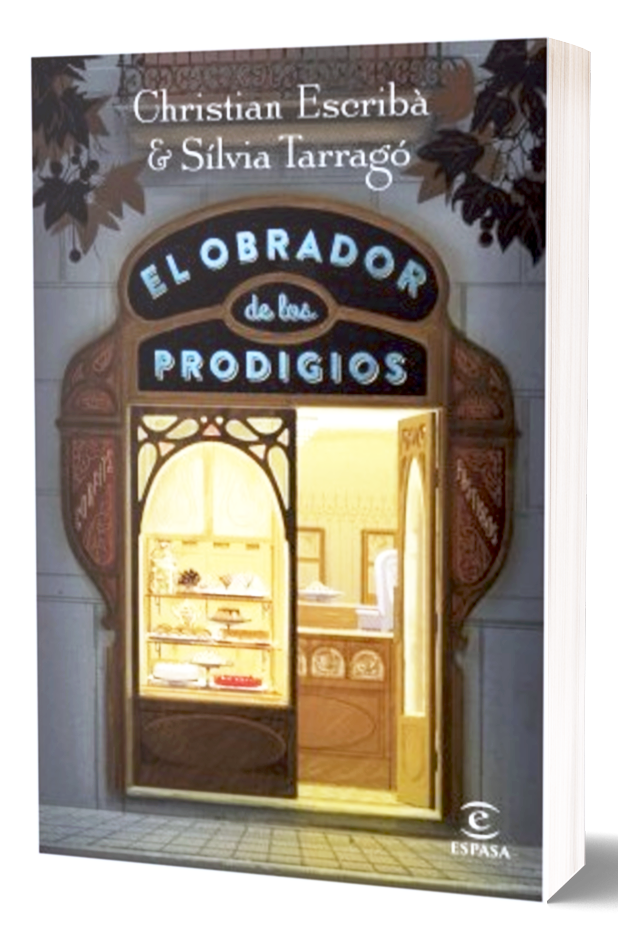CHOCOLATE-FLAVOURED PAGES
There are little things that happen to you and you don’t know why but they remain in your memory forever: a memory stored in your heart, rather than in your mind. The melted chocolate that my grandmother used to prepare Sunday mornings for my grandfather, and also for us if we had spent the night there, is a ritual I can’t forget: how she cut the chocolate in the kitchen, that black and intense chocolate bar. Then, she melted it in a red pot until the chocolate was thick enough and, with a big smile, she served the chocolate with some bread and butter. This was the perfect breakfast, and sometimes I feel the need to do it again so I can smell the Sundays in my grandparent’s home sharing bread and chocolate with love.
The kitchen, the chocolate, the bakery… It is a whole new world, and this week, I’d like to talk about a novel that has all the ingredients to become a best-seller.
El Obrador de los prodigios (the miracles’ workshop) tells the creation and evolution of the popular Escribà patisserie. At the same time, we will meet Alba, who will be the exceptional witness of a period of changes and consolidation. Two stories that merge in the wonderful world of the pastry making.
The story begins with Mateu Serra, a boy from Lleida who decides to leave his village to go to Barcelona, where he will start working in a bakery. Later, Mateu Serra, who had an unusual initiative and courage, founded his own bakery, which would be the beginning of the famous Escribà pastry shop: during the Universal Exhibition in Barcelona, Mateu hired the first of their generation, Antonio, who entered the bakery as a pastry chef. Years later, when Serra retired and the bakery had already gained fame thanks to the cakes of Antonio Escribà, he and his wife Josefina Serra took the relief and named the new property Escribà.
On the other hand, we are in 1947. Our protagonist Alba has always dreamed of having her own pastry shop, partly thanks to the influence of her mother and grandmother. She works as a cook at the Vidal company but the customers already appreciate her magnificent gift for the pastry making. There are several times when Alba, by chance, will come across the name Escribà: she has to work there.
This novel has a main plot, the history of the Escribà patisserie, which will take us through different periods: from the first change when Mateu Serra leaves his legacy to the first of the Escribà, the crisis during the Civil War and a magnificent later period of perfection of techniques.
But the novel also has time for love and family issues, which gives added value to the story, as well as the historical context that is vital for the resolution of the story: a Civil War that separates families or a old-fashioned mentality that will become an obstacle for Alba and her goal of being a pastry cook for the mere fact of being a woman. Our protagonist, then, will have to navigate against all these prejudices to achieve her dream.
The popular pastry shop has a great history that thanks to the collaboration of Christian Escribà and Silvia Tarrago, we will be able to devour it and to know more about the patisserie. One of those novels that you enjoy from beginning to end and you feel satisfied, just like when you finish tasting that chocolate I was telling you about. Isn’t this the perfect book to give as a present on Saint George’s Day?



